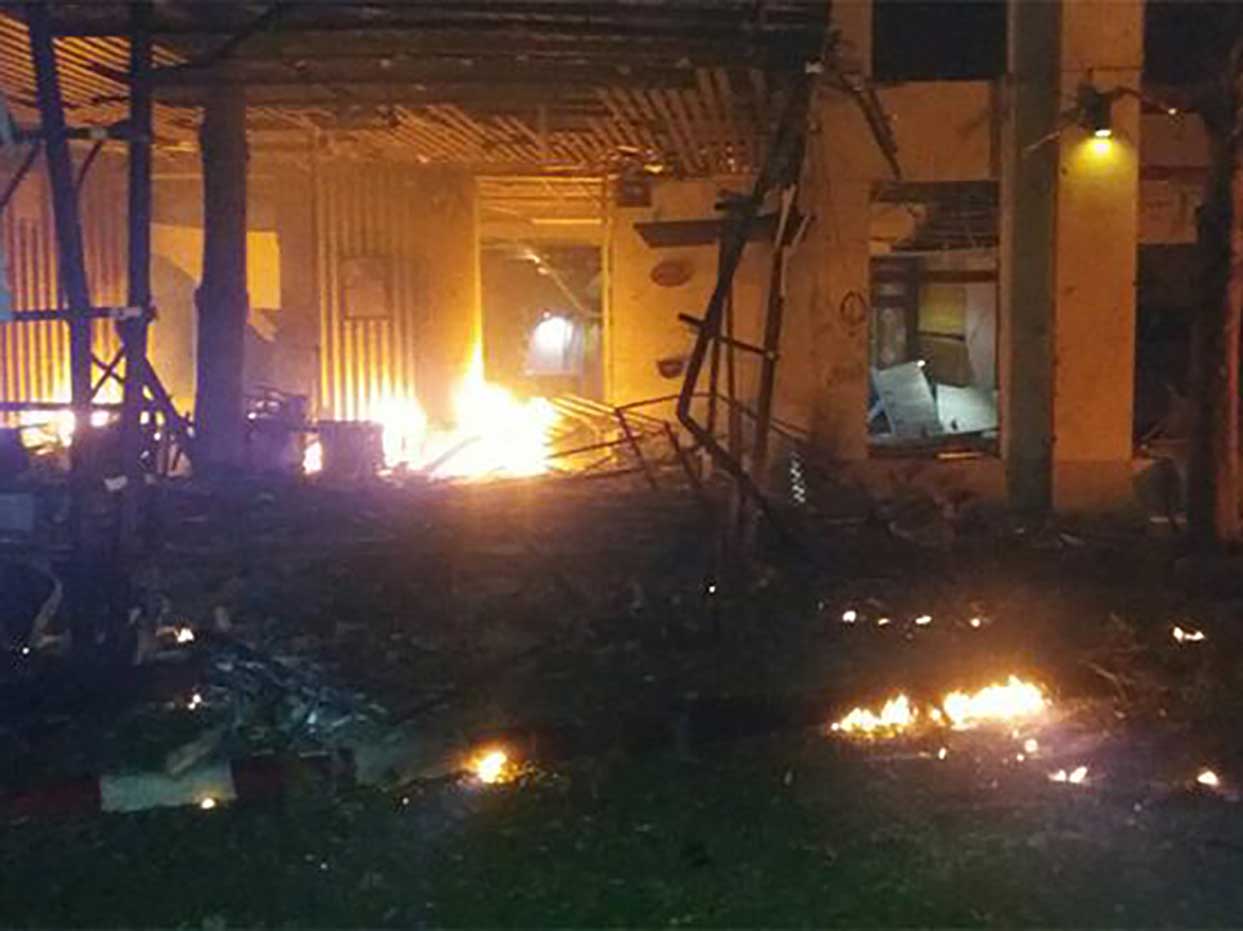One dead and 30 injured after bombs explode at Thai hotel
Blasts at beach resort town of Pattani come two weeks after a series of bombings targeting other tourist areas

A free daily email with the biggest news stories of the day – and the best features from TheWeek.com
You are now subscribed
Your newsletter sign-up was successful
One person is dead and 30 more injured after two bombs exploded in the beach resort town of Pattani, in southern Thailand.
The attacks come two weeks after a series of bombings across the country that claimed four lives and injured dozens. The military government does not believe there is a connection between the two incidents.
Tuesday's bombings took place at the Southern Hotel, an area popular with western tourists, although reports indicate the casualties were all Thais.
The Week
Escape your echo chamber. Get the facts behind the news, plus analysis from multiple perspectives.

Sign up for The Week's Free Newsletters
From our morning news briefing to a weekly Good News Newsletter, get the best of The Week delivered directly to your inbox.
From our morning news briefing to a weekly Good News Newsletter, get the best of The Week delivered directly to your inbox.
The first blast occurred in a car park behind the hotel and caused no casualties, said Police Lieutenant Colonel Winyu Tiamraj.
"The second explosion came from a truck parked at the hotel entrance, opposite a karaoke bar and a massage parlour, resulting in one death and 30 injuries," he added.
No groups have claimed responsibility for the bombings. However, "some security experts noted at the time that southern insurgent groups have a track record of carrying out coordinated bombing attacks", The Guardian says.
Insurgents from Thailand's southern provinces have been engaged in an ongoing conflict with the Buddhist-majority government for more than a decade.
A free daily email with the biggest news stories of the day – and the best features from TheWeek.com
"Near-daily shootings and roadside bombs have left more than 6,500 dead since 2004, most of them civilians," The Australian newspaper says.
Thailand bombings: Four dead in 'rare' attacks on tourist areas
12 August 2016
A series of "coordinated blasts" have killed at least four people and injured dozens more in a number of tourist hotspots across Thailand.
Two of the victims died after four bombs exploded in the seaside resort town of Hua Hin, 120 miles south of the capital Bangkok, with the attacks beginning late on Thursday. Four other locations have been hit by blasts. Police say "local sabotage" is to blame rather than international terrorism.
Two of the Hua Hin devices were hidden in plant pots, about 50 yards apart, and were detonated within half an hour of each other using mobile phones. Two more blasts were heard in the twon early on Friday morning.
British tourist Mark Gainsford, who was in a bar near the attacks on Thursday, said: "I heard people shouting, 'Bomb! Bomb!' but I didn't hear any blast.
"I ran out to see if I could help. I saw eight to ten people injured, on the floor. The police arrived very quickly."
Municipality police chief Sutthichai Srisopacharoenrat said one woman who was killed was a local food-cart operator.
Bombs were also detonated in the tourist areas of Phang Nga, Patong Beach and Trang, in southern Thailand, where at least one person was killed and five more injured. Another person died in Surat Thani after two blasts.
"It was not clear who is behind the attack, but the timing suggested it might be an effort to embarrass the military government that took power two years ago," The Guardian reports.
If it is insurgents, says Jonathan Head, a BBC correspondent in Bangkok, the attacks would mark a "significant change of tactics" after a 12-year conflict that has killed more than 6,000 people but never targeted tourists.
The blasts came as the nation celebrated the Thai Queen's birthday, says the Bangkok Post, which adds that "bombs are not unusual, but explosions at tourist areas are rare".